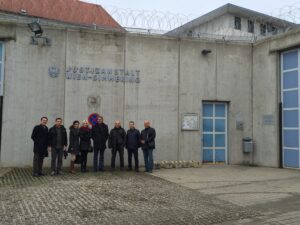
Implementation of the Priority Actions in Climate Change Sector
The Project’s overall objective is to achieve alignment of the North Macedonia’s legislation with the EU climate action legislation, and creation of an enabling environment for the successful implementation of the priority mitigation actions developed under the Long-term Strategy on Climate Action. The project’s specific objective is to

Supporting the Implementation of the Regional Waste Management Systems
The project aims are to support the North Macedonia in establishment of the regional waste management structure in the East and North-East Regions. To achieve its aims, the Project will be implemented through the following main activities: • Development and implementation of Regional Waste Management Public Awareness Program

Strengthening the Internal Market
Project is comprised of six components, as follows: Component 1: Improving the strategic, legislative and institutional framework in area of Free Movement of Goods Component 2: Improving the strategic, legislative and institutional framework in area of Free Movement of Services. Component 3: Improving the legislative alignment with the

Technical Assistance for Improvement of Enforcement Services in Prisons (DEPAR)
There was a general recognition that standards and conditions in Turkish prisons needed to be improved and brought into line with international norms, particularly those operating in the EU in the context of closer EU-Turkey integration.

Training for the Institutional Capacity Building on Climate Change Adaptation
The overall objective of the project is to improve climate change adaptation knowledge and the capacity of the Staff of Turkish institutions (members of CBCCAM (Climate Change and Air Management Coordination Board) for implementation of adaptation policies and projects.

Technical Assistance for Establishment of Rize Tea Research and Application Centre
Rize has the best reserves of tea in Turkey, however, the SMEs in the Tea region is not qualified enough to compete. Hence, the general purpose of the project was to increase the competitiveness of the tea sector concentrated in Rize and its surroundings. More specifically, it wanted

